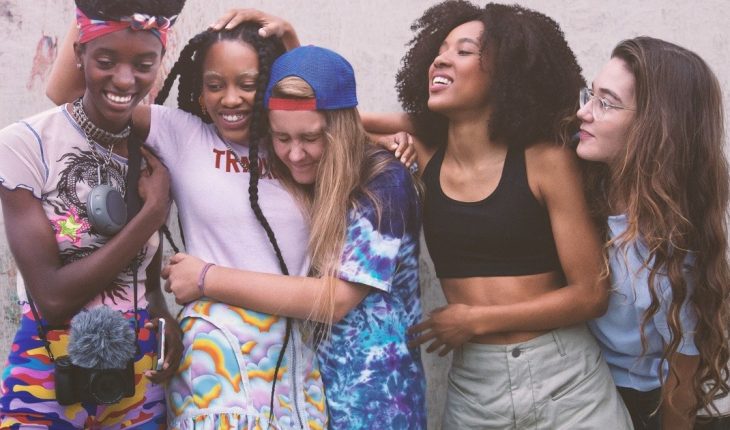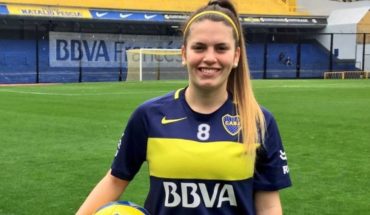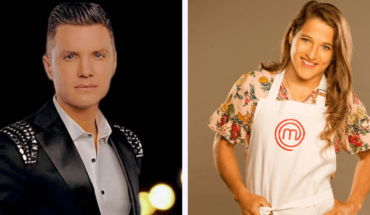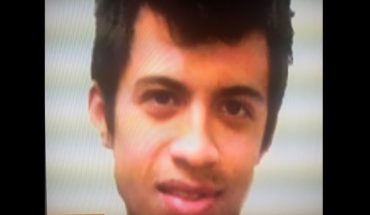“You should be in the kitchen”; that comment – which most of us heard at least once – was the one skateboarder Rachelle Vinberg found on Youtube when she started watching videos of women in the skateboarding community. Something similar happened to Nina Moran, who confessed in a TED talk: “They made fun of me every time I fell and claimed that it didn’t make sense for women to skate because they would never do better than a man.” Rachelle and Nina met online; their videos were discussed, they became friends on Facebook and two years later they met in person. “The first thing we did when we saw each other was bump the five of us and start teaching us tricks; it was amazing to feel like there was someone like me,” he said in that talk. It was on the G line of the New York Subway when they met director Crystal Moselle, who made them a proposal as exciting as it was novel: to participate in a documentary about female skateboarders. Because they weren’t alone: they were part of a female skateboarding scene that was growing more and more in New York. Thus was born the short documentary “That One Day” (2016), for Miu Miu Women’s Tales, where they met Ajani Russell, Kabrina Adams and Dede Lovelace. Such was the success of that project -winner of the Grand Jury Prize at Sundance- that two years later it became the film “Skate Kitchen” (2018) -nominated at the Gotham Awards and Mar del Plata Festival-, where they returned to work together.
If we talk about women skateboarders, among the pioneers in the United States we can name Patti McGee, Ellen O’Neal or Ellen Berryman, who with all their work and talent opened the doors in a world historically considered for men. In fact, in the ’90’s all the women who entered skateboarding culture were disparagingly called “Betty.” That’s why they came together once again to claim that word and claim it in the new HBO series that bears that name. It is a spin-off of “Skate Kitchen”, where it explores in greater depth the characters and their stories; although they can be understood separately, if you are interested in the subject it is advisable to see them and know a little more about the universe. A not minor fact: the protagonists are not professional actresses, but in all three projects they played a fictitious version of themselves, which gives a greater naturalness to the story.
“I don’t know what it will be like for other people who just have to work with strangers, I guess they’re used to it. We have a great relationship, we’re working together and it’s mostly a female cast. The inspiration part of the group, there’s definitely our influence there. The production takes it into account to add a little more to the creation of the story and our characters and our interactions,” the actresses explain. Then they continue: “I don’t think we understood how important skateboarding was until a few years went by, when we understood that this is a movement. This is a really serious thing that a lot of people live through. It’s not just about us, it’s about other young women and other people who are underrepresented in skateboarding and that’s another reason why we decided to make it a show and be able to talk about it. So it slowly became something bigger and now we really understand it, we’re really grateful to be able to talk about it and share it.”
Photo: Courtesy press
Rachelle returns as Camille, the skateboarder who is inspired by Charles Chaplin to dress; Ajani Russell is Indigo, a young woman who begins to get involved in the world of skateboarding; Dede is Janay, one of the organizers of the women skateboarder gatherings alongside Nina as Kirt; while Moonbear is Honeybear, who with his camera captures his companions in action -the same thing he does in real life for his Youtube account Moonbeardiedhere-. Each of the actresses has thousands of followers on social networks, where they share videos of their work.” Skateboarding is a refuge for many people, as if it were their escape from their problems with their daily lives,” the actresses say and continue: “Feminism made the world of skateboarding a much better place. For guys too, in the past skateboarding was something that people associated with being tough, being punk, very masculine, right? You have to be an idiot and it’s great and fun, but now no, it’s not great and it’s not fun to make fun of people and if you make fun of people now, skateboarders will like to make fun of you for making fun of people. And that’s thanks to feminism.”
Photo: Courtesy press
In fact the plot talks about sexuality, machismo, cultural appropriation, sexual abuse, racism, family, cancellation culture, sorority, explores various themes in the search of adolescent identity and self-discovery. All from a fresh and dynamic perspective, which also identifies the format of the series, with 6 caps of half an hour each per season.” I feel like I really had to mature quickly in the second season. There are stressful situations and circumstances where she had to be flexible, or learn to be flexible, be resourceful and figure out how to make her situations work for her in the best way. I feel like he somehow strained his relationships with his friends and had to work on how to navigate those kinds of situations and figure out what matters to him and how to use his values,” Russell said of his character Indigo. Vinberg continued: “I think Camille in the first season cared a lot about what people think of her. He liked the guys around him, the skateboarders, and he wanted their approval. I think in the second season she finally grows up and cares about the people who really care about her, and not maybe how she looks or how the image maker turns her into something she’s not.”
Photo: Courtesy press
With a script and production by Moselle with Lesley Arfin (“Girls”), the strength of the series is the construction of the atmosphere and cultural portrait of the time, as in the expression and language of the characters that reflects their identity. Through skateboarding, young women go through a process of self-discovery, experimentation and liberation, of sharing and forming communities with strangers, of fighting prejudices, of encountering the sorority as a flag in the post-#MeToo era.” They are open to creating spaces for women. Every time a new girl arrives at the skate park, they greet her and integrate her. They’re not mean girls, and that’s something you have to learn from. It’s the main difference I see between these girls and the environments in which I moved as a teenager. Then there wasn’t as much support among women, there was only competitiveness. They have changed that idea of how to treat each other,” the director said in a conversation with Vogue.
Crystal Moselle
But the series not only captures with what it tells but with how it tells it: it has a visual work that reflects the energy of the characters, recorded with camera in hand on the streets of New York with the music of Cigarettes After Sex or Ruby Haunt in the background.” When I walked in with the writers I explained to them what was going on with me and when we see what they write based on the information we gave them. We think ‘it’s okay, that’s how we’d talk or so that character would say’, we give them a lot of feedback, we tell them our experiences and they take a lot of notes. At the end of the day they choose which stories or which parts they want to incorporate into the program. It’s our world, so we definitely have to communicate,” the actresses say. The second season was filmed in the midst of the coronavirus pandemic, which brought it into the story with the use of chinstraps and care protocols. “It was really nice to finally be outside and talk to people face to face and see people, like my skateboarder friends that I haven’t seen in a long time. To be working during quarantine was really crazy. We go out skating in the streets and that’s more fun. I think it was also nice to be able to capture what that looks like in our world. This is a real thing that everyone is going through and we can’t ignore it,” they said.
This June 18 premiered the second season of the series, which is now available on HBO. If you were left wanting to see even more, the specials “Meet The Betties” are also available on Youtube to see a little behind the scenes and what the work on the series represented for them. “There is room for new seasons,” the actresses confess. I like that in the series we’re ourselves and I think people can identify with that. We felt like it’s about starting a conversation, our goal was to represent my people who are underrepresented, all the women of color, women who skateboard, queer women, non-binary women, and who like all those different perspectives and different ways of life, but also without trying too hard to force a message. It’s about starting the conversation instead of forcing a message,” they say. Today we know skaters who break it in nets and in the streets such as Sky Brown or Rayssa Leal, and that in Argentina we also live with figures such as Paula Costales or Valeria Kechichian. Why skate? perhaps the most important thing is the answer that Nina gives in the first chapter of the series: “Because it’s fun, why can’t we have fun”?.
On this note:





